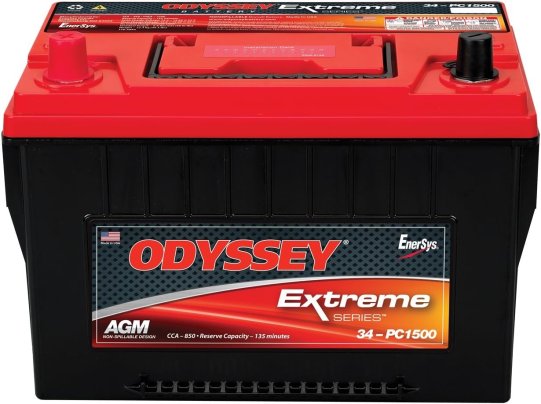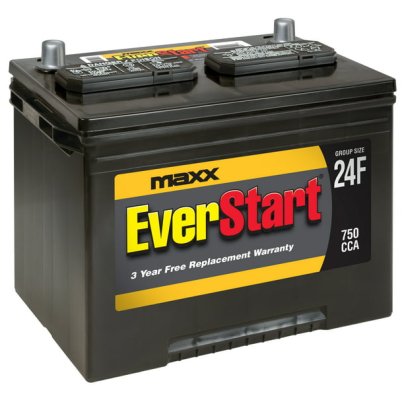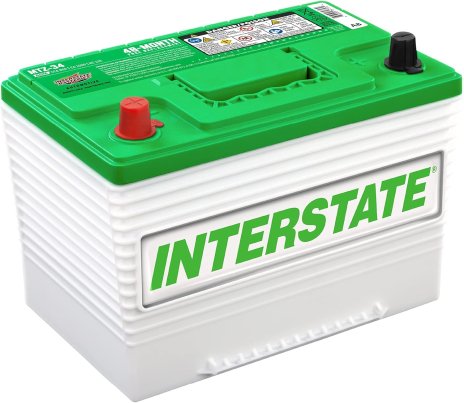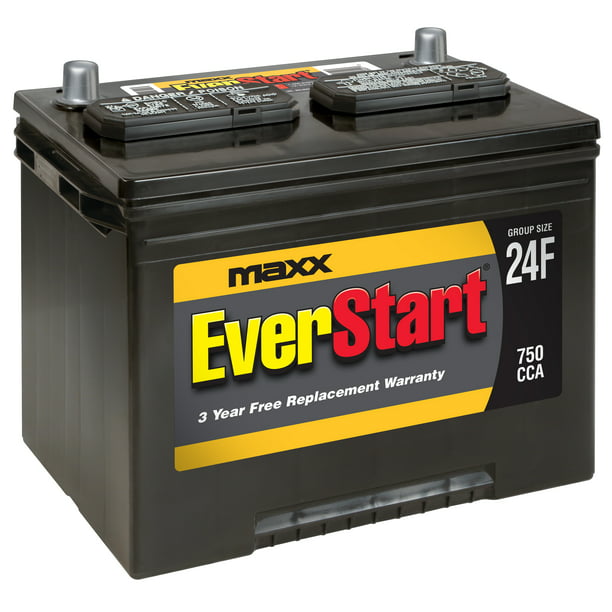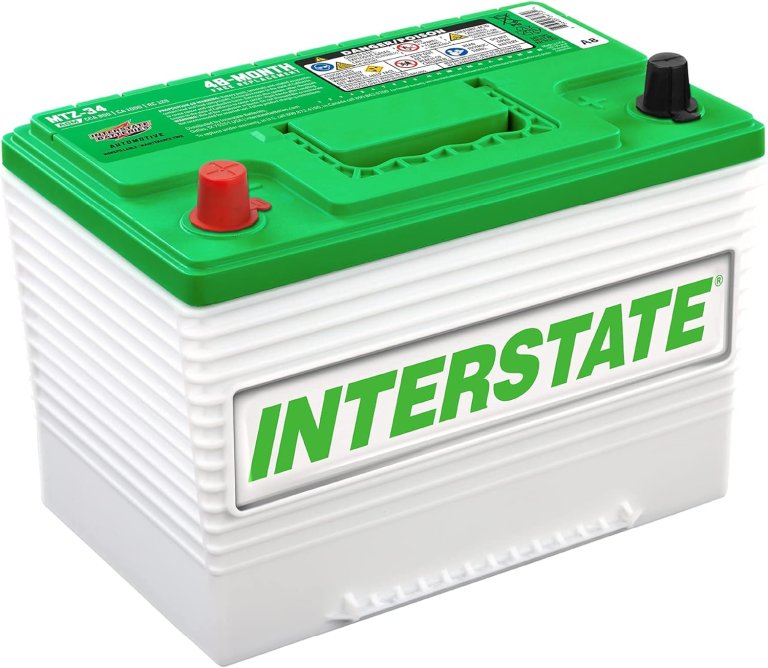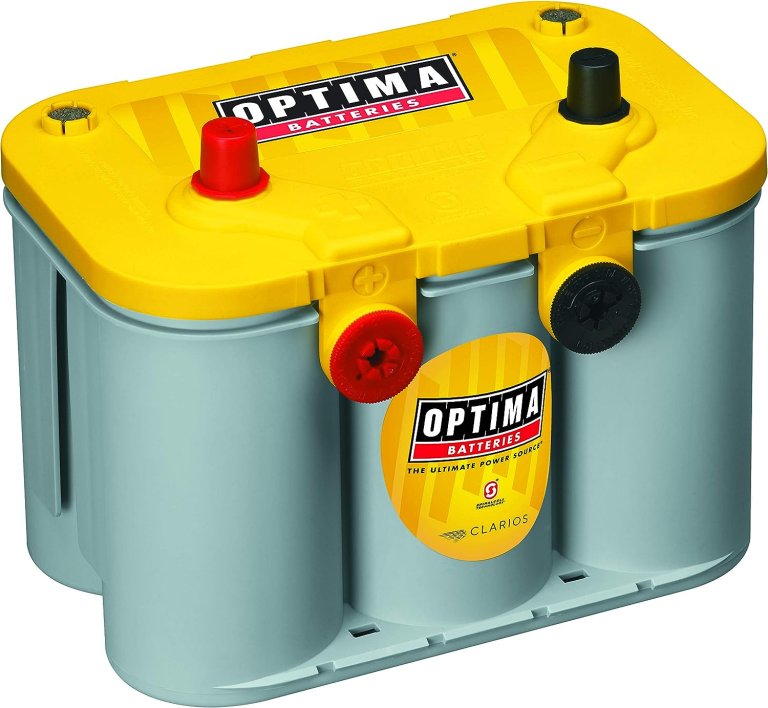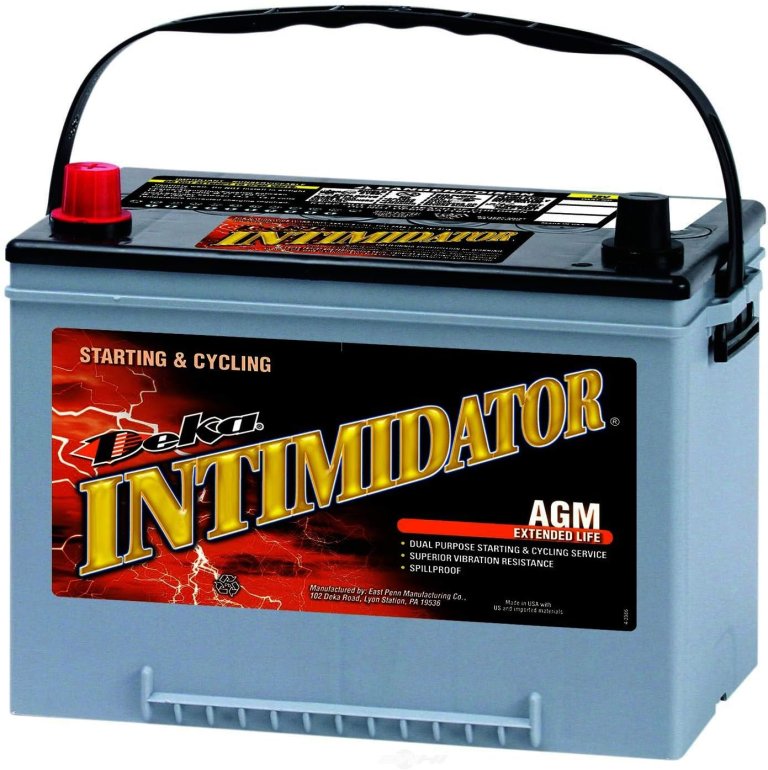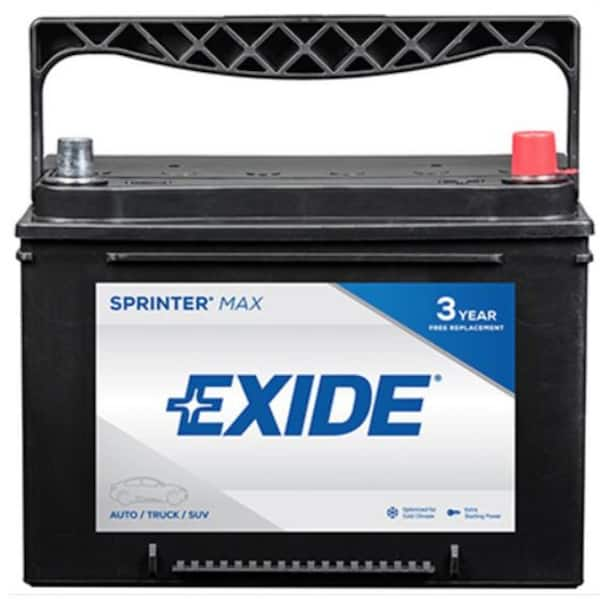We may earn revenue from the products available on this page and participate in affiliate programs. Learn more ›
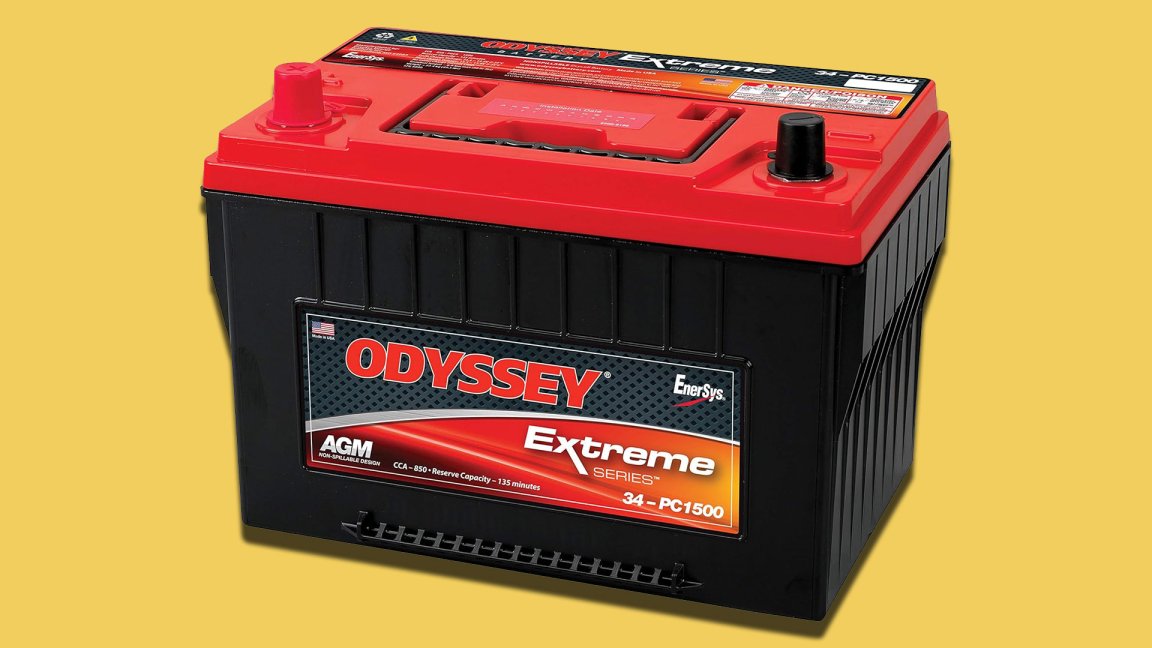
Knowing that the alternator does the heavy lifting for the electrical system when a car is running can be a poisonous thought. You start to take the battery for granted. As long as there’s enough juice to turn the engine over, you’re good to go, right? That mindset can easily get you caught in a loop of buying battery after battery from different companies, wondering why you can’t keep one in your car. It might be a parasitic draw on the battery, but it can also happen because many companies know folks tend to buy whatever’s in front of them without putting much thought into their purchase. Since more and more people are catching on, we thought we’d share what brands are worth your consideration.
Summary List
- Best Overall: Odyssey
- Best Value: EverStart
- Honorable Mention: Interstate
- Most Dynamic: Optima
- Best Option for the Long Haul: Deka
- Best Value Runner-Up: Exide
Our Methodology
Our team of experts has been using car batteries for as long as we’ve been driving. We’ve even repurposed many for recreational uses. Collectively, we all have opinions on who makes the best car batteries. To keep tension low and our recommendations sound, we’ve also done our share of homework to come up with our list. We looked at details such as where the batteries are made, what each brand is known for, and what the public has to say about them. The thing is that your experiences are going to determine what one works best for you, so treat this list as a starting point in your quest.
Best Car Battery Brand Reviews & Recommendations
Best Overall: Odyssey

Pros
- Dependable AGM
- Made in the USA
- Respectable warranty
Cons
- Expensive
- Hard to find
For those who are familiar, it’s probably no surprise to see Odyssey at the top of our list. Odyssey’s AGM batteries essentially set the standard for what car batteries should be in today’s day and age. They’re made in the USA, use nothing but pure lead, and are built exceptionally well to ensure the best reliability in even the toughest environments. So much so that it’s a name familiar to specialty service vehicles used by police, the military, and emergency responders. Of course, backing its batteries with a three-year warranty for non-commercial recreational and marine applications and a four-year warranty for non-commercial cars and trucks gives the average civilian peace of mind.
The cost of these batteries is about the only thing that makes putting them on the top of the list controversial. There’s no doubt that most of us are bound to grab something a little more affordable. Also, the fact that they aren’t exactly readily available from the average auto parts chain store is going to keep many from giving Odyssey a shot.
Best Value: EverStart
Pros
- Affordable
- Respectable performance
- Decent warranty coverage
Cons
- Quality control lacking
- Middling value
An Ever Start battery is what most folks would choose. The price and convenience of sourcing them from Walmart make them hard to beat. On top of that, the name has done nothing but deliver for the majority of car owners. While the flooded lead-acid batteries might not have all the bells and whistles the premium names come to the table, they’ve proven to be reliable enough for the average commuter. Toss in a three-year warranty and the option to upgrade to the Platinum AGM battery, and it’s something everyone should consider.
Like any other battery, you’ll hear mixed things about the Ever Start line. Quality control issues inspire many warnings to steer clear of the brand. And while performance is good enough for most, there’s no denying that other names certainly outperform Ever Start in extreme situations, prompting those who live in the colder regions to look elsewhere.
Honorable Mention: Interstate
Pros
- Reliable
- Long warranty
- Competitive pricing
Cons
- Not easily found
- Expensive
Interstate is also deserving of top awards. Professionals often recommend Interstate batteries due to their reliability, reasonable pricing, and a solid five-year warranty. Its lead-acid batteries are what most seasoned vets are familiar with, but it keeps up with the times with its AGM offerings that provide comparable performance to other names.
While many mechanics will offer Interstate batteries, they aren’t as readily available from many parts stores. Also, the cost is often just high enough to warrant going with a competitor for the typical commuter.
Most Dynamic: Optima
Pros
- Specialty applications
- High-quality lead
- Excellent vibration resistance
Cons
- Quality suffering
- Warranty process frustrating
Optima’s signature spiral-cell AGM batteries are known contenders in the realm of 12V power supplies. These specialty batteries consisting of 99.9 percent pure lead could be found in performance applications on the track, water, or trail and in many daily drivers. The option of starting, deep-cycle, and marine batteries gives performance enthusiasts what they need to get anything up and running. Optima’s spiral cell technology in its AGM batteries is how it aims to produce the best in terms of battery life, storage time, and vibration resistance.
Though Optima is not the worst of the bunch, its fall from grace has put a foul taste in many consumers’ mouths. It’s believed quality took a hit when production was moved to Mexico, and many feel the brand is cashing in on what it used to be. However, quality isn’t necessarily the issue. It’s the fact that the warranty only covers a one-time swap, even if the second battery fails for reasons outside of the consumer’s control.
Best Option for the Long Haul: Deka
Pros
- Made in the USA
- Holds CCA rating
Cons
- Not easy to find
- Expensive
Deka is not a new contender and just might be the way to go if you’re after the toughest battery out there without spending the big bucks on premier names. Why? Because Deka builds its batteries in the USA to be a little overkill. It’s inevitable for a battery to lose its oomph over time. However, Deka’s line is notorious for holding its CCA ratings long after many others start to dwindle down. This has to do with the fact that these units are often able to put out a higher CCA rating than is stamped on the side when new. That way, when you check the CCA rating four or five years down the line, it might match the actual rating. That said, the Intimidator AGM is its claim to fame, but lead-acid batteries are on the roster.
The biggest drawback to Deka is its lack of popularity. While some big chains do carry it, you won’t find it at the red and orange stores on every corner. Also, the price is a little higher than what you’d pay for batteries from the competition.
Best Value Runner-Up: Exide
Pros
- Readily available
- Respectable performance
- Competitive pricing
Cons
- Short warranty
- Poor warranty process
Easily one of the most recognizable names in the industry is Exide, known for serving the average car owner for many years. Lead-acid batteries are familiar territory for the name, but there are AGMs in the lineup to meet the demands of newer vehicles. Of course, the prices of Exide batteries are partly to thank for its popularity, as is the convenience of being able to source these U.S.-made batteries from many big-name chains.
Unfortunately, the warranty is not Exide’s strong point. At just two years, it’s on the short end. Customer service is also something of an issue. Many users feel that the warranty just isn’t worth the hassle.
Our Verdict
Odyssey batteries are pretty much the best on the market. The reliability, performance, and answer to niche applications make it so, in our view. Ever Start batteries have also proven more than capable of keeping car owners across the country moving on a budget.
Be sure to reach out and let us know what you think are the best battery brands on the market.
Types of Car Batteries
Flooded Lead Acid
Traditional car batteries work by soaking lead plates in an electrolyte, which is essential to the electrochemical reaction responsible for creating power. In a lead-acid battery, otherwise known as a wet-cell battery, the lead plates are physically submerged in sulfuric acid. These are the most common and most affordable types of car batteries. They do have a few drawbacks. Primarily, water must be added from time to time, you can only mount them upright, and you shouldn’t place them in confined spaces as off-gassing of hydrogen can be dangerous. It’s important to note that you can generally upgrade any car originally equipped with a flooded-acid battery to an AGM, but the opposite is not true. Modern cars with stop-start technology are designed to use either an AGM or EFB battery.
Absorbent Glass Mat
AGM, or absorbent glass mat, batteries are essentially the leveled-up version of lead-acid batteries, which were originally designed for aircraft. The chemical reaction is largely the same in that the key players are lead and an electrolyte. However, fiberglass mats between the plates carry the electrolyte rather than submerging the lead in liquid. This makes for a more efficient, spill-free battery. They are also able to withstand shock and vibration better than traditional batteries, can withstand colder temperatures, and supply deeper cycles. The only real drawbacks are that they are generally more costly than other batteries and require special chargers.
Enhanced Flooded Batteries
Enhanced flooded batteries are another common type. All that essentially separates these units from a traditional flooded acid battery are their enhanced charging and deep-cycling abilities. You can think of this as a unit that breaches the gap between flooded lead-acid and AGM batteries in many ways. These are commonly used in compact cars with stop-start technology alongside AGM batteries for larger vehicles. That said, you can upgrade from an EFB to an AGM battery in most situations. However, you should not move to an EFB if the vehicle is designed to work with an AGM battery.
FAQs
You’ve got questions. The Drive has answers.
A. Car batteries can run anywhere from $100 to $350. How much you pay depends on the brand and type of battery you opt for. In most cases, regular lead-acid batteries are closer to the $100 mark, while AGM batteries tend to draw higher prices.
A. The two key features you want to keep in mind are the type and group classification of the battery. Most older vehicles want a lead-acid battery, while newer applications often call for an AGM. The group number has to do with the physical dimensions, and you want a match as this determines not only the size but the location and type of terminal posts that are present.
A: CCA means cold-cranking amps. It essentially tells us how many amps the battery can supply continuously for 30 seconds at 0 degrees Fahrenheit. Most applications want 650-800 CCA, but more is almost never bad. Another detail to read into is the reserve capacity, which essentially tells you how long the battery can power the vehicle without the engine running.
A: There are many reasons to upgrade to an AGM battery, and you can do so freely. It’s always wise to read into your application in case there are any nuances that may present issues, but it’s usually a drop-in swap as long as you select the right group number.
A: Most car batteries will last about 3-4 years. However, if you buy from a reputable car manufacturer, your battery may last longer. It’s common for people to get 5-10 years out of a good battery.
